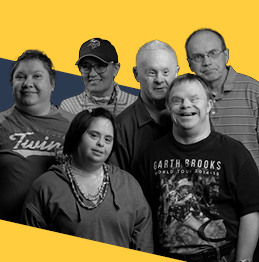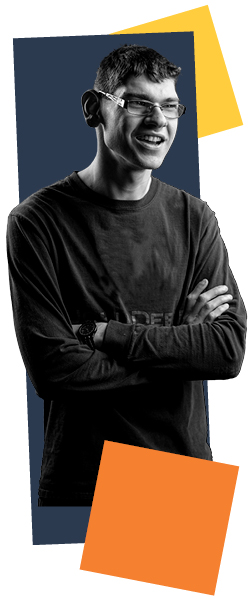
Lifeworks knows that if we want tomorrow to be different, we have to change today. We are always learning so we can continue to advance conversations about inclusion. As an industry leader, Lifeworks invests in exploring concepts and practices. We break down barriers and encourage a sense of belonging. One of the areas that we are working to raise awareness around is ableism.
This year, we are sharing our expertise about ableism with the business and non-profit communities. We are providing trainings, workshops, and presentations at local and national conferences. So far, Lifeworks has been selected to present at the Minnesota Social Service Association conference and the National Association of Professional Supporting Employment First conference.
 What is ableism?
What is ableism?
Ableism is a system in which being nondisabled is treated as a standard of normal living. In other words, ableism promotes the belief that people with disabilities are inferior to those without disabilities.
Why does ableism occur?
Ableism is a way of coping with differences. It occurs because our society does not value people equally. Having a disability is often incorrectly viewed as atypical. The societal response to that misconception is to try and fix what is perceived as wrong.
Ableism also occurs because people with disabilities are usually not in positions of power. This means that their voice is rarely part of the decision-making process for workplaces and communities.
How do I recognize ableism when I see it?
Recognizing ableism is not easy because it is so ingrained and normalized in our society. However, there are ways to identify when it’s happening. One useful tip is to think of the person you respect the most – your role model. Ask, “Would I talk to my role model that way? Would I make that assumption about them?”
How does ableism inhibit community?
Humans are inherently different – and disability reflects that diversity. Accessibility and diversity enhance all lives. By not encouraging all people to contribute, we hold communities back from what they could become. In other words, we miss opportunities to hear multiple perspectives that have not been considered before so we remain stagnate.
How can I learn more about ableism and preventing it?
Reading materials created by people with disabilities can provide a perspective of lived experiences. Books such as James Charlton’s Nothing About Us Without Us, Susan Sygall’s No Ordinary Days, or Keah Brown’s The Pretty One are great resources for building an understanding about ableism and inclusion.
